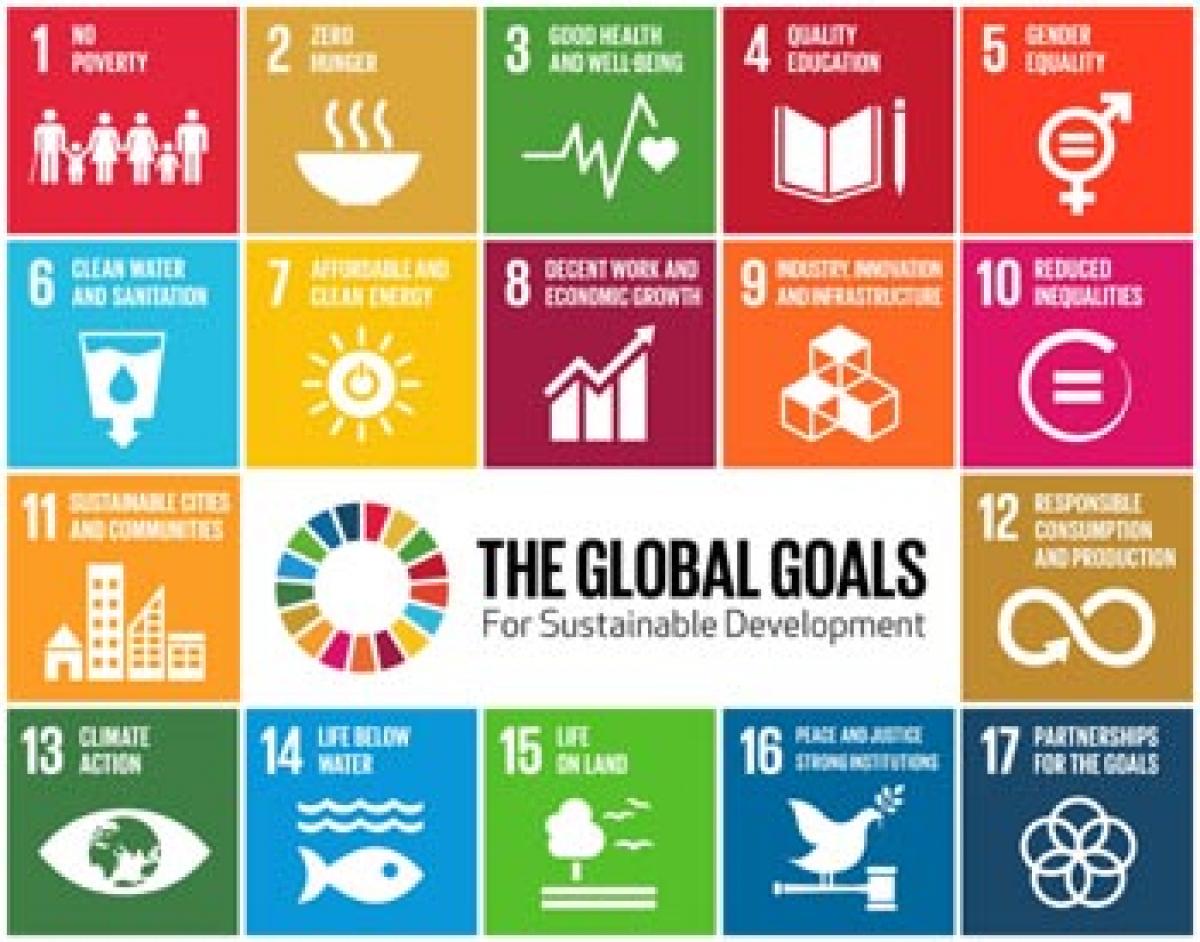Live
- Turkey fines Meta over child privacy breach
- Afghan acting minister among four killed in suicide attack in Kabul
- Smart India Hackathon: PM Modi focuses on out-of-the-box thinking for national and global progress
- Air India Extends ‘vista Stream’ In-flight Entertainment Service To Narrowbody Aircraft
- Ex-CM, Padma Vibhushan Krishna’s funeral held with state honours in Karnataka
- Maruti Suzuki inaugurates 500th NEXA Service touchpoint
- Royaloak Furniture Announces Exciting Year-End Sale providing up to 70% off on all International Furniture & décor products
- Pakistani Girl Murdered in UK: Father and Stepmother Convicted in Sara Sharif Case
- Maha Kumbh Mela: Understanding Its Unique Significance
- YouTube Introduces Real-Time Multiplayer Gaming with Playables
Just In

Indian expertise for African SDGs . The current development agenda is driven by five transformative shifts: to leave no one behind; to put sustainable development at the core; to transform economies for jobs and inclusive growth; to build effective, open and accountable institutions for all; to forge a new global partnership.
 The current development agenda is driven by five transformative shifts: to leave no one behind; to put sustainable development at the core; to transform economies for jobs and inclusive growth; to build effective, open and accountable institutions for all; to forge a new global partnership. The 17 specific goals with 169 targets recently adopted by UN member countries bind the nations together under the universal framework of the Sustainable Development Goals (SDGs).
The current development agenda is driven by five transformative shifts: to leave no one behind; to put sustainable development at the core; to transform economies for jobs and inclusive growth; to build effective, open and accountable institutions for all; to forge a new global partnership. The 17 specific goals with 169 targets recently adopted by UN member countries bind the nations together under the universal framework of the Sustainable Development Goals (SDGs).
Economists across the world advocate that with such large financial implications, the world, especially the developing part, must find ways to raise funds in addition to the available aid. While the debate continues on the financial commitment by the developed countries through official development aid (ODA) to meet SDG targets, it is recognized that domestic resource mobilization (DRM) will play an important role in achieving the upcoming goals. Several studies point out that reliance on internal resources through DRM rather than aid ensures better accountability of public policy towards citizens.
Most African countries, like India, are at a critical juncture in their development and steps towards reducing dependency on foreign aid needs to be taken in parallel to increasing public investment in development initiatives. The gradual turnaround in India's economic situation provides great learning to Africa, which is experiencing conditions similar to India's during the 2000s.
The Indian story in improving domestic savings can prove instrumental in fuelling Africa's overall economic growth and poverty alleviation. In India, the biggest source of savings is the household sector, followed by the private sector and the public sector. The self-help group (SHG) model, which promotes thrift and credit, financial literacy and financial inclusion amongst women living in poor communities who otherwise do not have access to savings, provides an opportunity to also enhance the share of household savings.
Taxes are an important domestic resource and have a role to play that is distinct and complementary to the role of private savings. Most importantly, taxes and other government revenues should fund the provision of essential public goods such as education and health services, infrastructure development and maintenance, law and order, and efficient public administration.
In India, tax reforms involving lowering of tax rates, broadening the tax base and reducing loopholes have been undertaken and have been successful in raising the tax ratio in the case of personal and corporate taxation. Most African countries collect only a fraction of potentially available taxes. For them to be able to successfully manage their own resources to their best interest there is a need to provide a mechanism to guide against mismanagement and misallocation of scarce resources.
By Ashwajit Singh

© 2024 Hyderabad Media House Limited/The Hans India. All rights reserved. Powered by hocalwire.com







